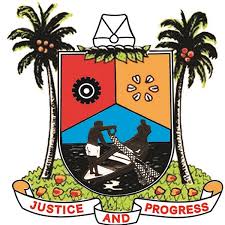
How Procurement Act will impact building sector
The built environment has been fraught with challenges of collapse, quackery, substandard materials, abandonment, and poor workmanship. Operators say poor policing of the sector and near lack of adherence to laid-down procedures are drawbacks to having a virile building sector. The Lagos State Government, however, says it is considering the introduction of Standard Operating Procedure (SOP) for Ministries, Departments and Agencies (MDAs), OKWY IROEGBU-CHIKEZIE reports
Experts and stakeholders in the built environment are worried. Their concerns stem from the lingering quackery of artisans in the sector. And with building collapse that has plaguing the state, nay, the country, such worries can be understood. Building collapse and other problems of the sector can be said to be seated on a tripod – poor quality jobs, poor quality building materials and lack of competence of most masons and artisans.
Besides, the non-adherence to the Public Procurement Act is believed to be a major albatross for the industry. The Act emphasizes competence, appropriate pricing, structured funding, use of standard and quality materials.
Others are designed to entrench quality, efficiency and safety in line with global best practices.
At a recent summit put together by the Nigerian Institute of Building (NIOB), tagged: “Appropriate procurement methods: Ensuring effective building production,” the body said rising inflation index on resources in the construction industry has led to a reduction in business activities in the sector with inflation impacting negatively on individual’s and corporate body’s purchasing power; and by extension reducing appetite for new projects.
Vice-Chairman, NIOB Lagos Chapter, Sunday Wusu, said sound procurement would successfully help in completion of projects on schedule, and at the right cost to stakeholders without recourse to arbitration or litigation.
He called on professionals to see appropriate procurement methods in its true light and recognize the distinction between different procurement methods for different project; that would help in arriving at the best options for each project.
Wusu said: “Appropriate procurement methods when holistically analyzed at inception and put to use would undoubtedly help in reducing, if not eliminating cost overrun that culminate from an extension of time due to unforeseen mistakes from the various stakeholders on such projects.”
He further argued that appropriate procurement methods when holistically analyzed at inception undoubtedly help in reducing, if not eliminating, cost overrun that emanates from extension of time due to unforeseen mistakes.
Wusu further stated that all over the world it is generally believed that the success of a construction project is largely dependent upon the type of procurement method applied. He listed the factors influencing the choice of a procurement model to include project start and finishing time; need to foster control; project size; risk management and price uncertainty due to time consideration and technical complexity.
Others are quality control, administrative complexity, and familiarity of the procurement method.
However, he said no one method has the solutions to procurement challenges, urging consultants and professionals to continually update their knowledge on the suitability of one method over another for projects.
Wusu said attaining building production required design and construction document, including client’s goal for the project and government requirement.
On cost management at site, he said the overall objective is to ensure that scarce resources are utilised to the optimum benefits.
His words: “The design and execution of a project should produce maximum value for money this is because the cost of capital is high and it is only operated for short term.”
Wusu charged his members on the need for fair play. He said: “In contract award, there should be fair play. Price though significant criteria should not be the sole determinant or even the most important criteria in sensitive projects or in the award of contract.
Other factors such as technical, financial and administrative capabilities are major items that should be evaluated at the prequalification stage. It should be given to the qualified bidder whose bid substantially conforms to the requirement set forth on the solicitation documents.
Underscoring the need for integrity in the process, he said: “Due process” policy in contract awards was introduced to ensure the selection of the most appropriate contractor to deliver construction projects as specified so that the best value for money is ensured.
But despite this, project delivery has been characterized by inefficiencies that lead to poor quality, time and cost overrun.
Chairman, NIOB Lagos, Adelaja Adekanmbi, spoke on the need to check corruption and maintain integrity in the procurement and construction process.
He said honesty in procurement processes, which should reflect in cost and successful completion of projects on schedule, and at the right cost to all, without recourse to arbitration or litigation, was lacking in the country.
He urged builders to align themselves with procurement methods that would effectively manage time- tasted and value-building production processes according to global ethics.
He stressed that zero percent of accidents could be achieved at construction sites if corruption was eliminated. Adekanmbi advised professional to avoid being used by the government or her agencies to perfect corrupt practices. The NIOB chief canvassed time management and sticking to program schedule in the building process stating that if all these are adhered to the sector will be robust and grow the economy
Similar Topics
The Lagos State Government has commenced the demolition of illegal structures within the Lekki Free...
7 days ago Read MoreNigeria’s recently enacted Tax Act of 2025 (NTA 2025), which becomes effective on January 1,...
7 days ago Read MoreMember States of the United Nations Human Settlements Programme (UN-Habitat) have endorsed a new...
a month ago Read MoreNigeria Enters a New Tax Era Come January 2026, Nigeria’s property market will experience a...
a month ago Read MoreImproved Security and Diaspora Capital Drive Rebound The housing sector in Nigeria’s...
a month ago Read MoreThe Lagos State Government has announced that night-time repair works will take place on Ozumba...
3 months ago Read MoreThe Federal Government has suspended all previously approved, pending, and prospective applications...
3 months ago Read MoreThe Federal Government has successfully mobilised more than N70 billion in private capital...
4 months ago Read MoreThe Lagos State Government, through the Lagos State Physical Planning Permit Authority (LASPPPA),...
6 months ago Read MoreThe Federal Government has expanded the Abuja-Kaduna-Kano Road project to incorporate a direct...
6 months ago Read MoreThe Federal Capital Territory Administration (FCTA) has taken possession of Wadata Plaza, the...
6 months ago Read MoreDefaulters on FCT ground rent now have 14 days grace to pay up what they owe the FCT Administration...
6 months ago Read MoreUnprofessional practices by estate agents in major cities are significantly influencing the spike...
7 months ago Read MoreA Real estate development firm, Lifecard International Investment Company, has revealed that many...
7 months ago Read MoreDespite a fall in investment volumes from the 2021 peak, there is an ongoing desire for property...
7 months ago Read MoreThe Lagos State government has advised the leadership of the Nigerian Institution of Estate...
7 months ago Read MoreReal estate market dynamics such as construction cost, land, finance, government policies and taxes...
7 months ago Read MoreEvent Set to Celebrate Managers Who Shape Careers and Drive Organizational Growth Business...
8 months ago Read MoreGlobal Leaders to Converge in Lagos for Landmark Event Driving Urban Innovation and...
8 months ago Read MoreIn a bold move to redefine affordable luxury housing, Nigerian real estate giant Gtext Holdings has...
9 months ago Read More
















